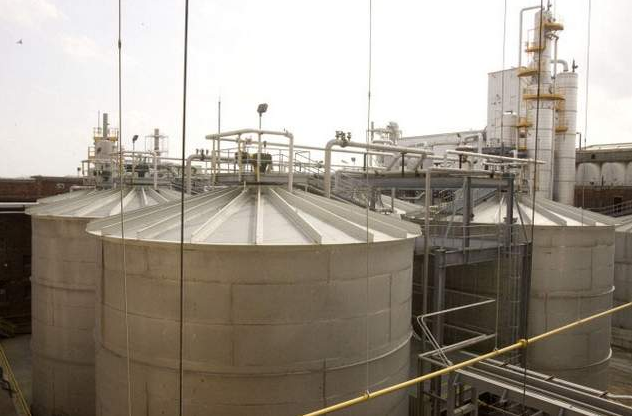WASHINGTON — An Environmental Protection Agency proposal to lower the required level of ethanol in petroleum-based fuels has stalled, leading to speculation that politics are in play as the midterm election looms.
Nearly a year past the Nov. 13, 2013 deadline, the Renewable Fuel Standard still is under review by the White House Office of Management and Budget. The Environmental Protection Agency had proposed that 13 billion gallons of corn ethanol be blended into the nation’s fuel mix in 2014, lower than the 14.4 billion target outlined in a 2007 law.
Though the proposal was cheered by oil companies and faced backlash from the ethanol industry, representatives from both industries, as well as state leaders, said they are disappointed in the apparent lack of progress on the ethanol mandate this year.
“This is not leadership,” said Iowa Gov. Terry Branstad, a Republican. “This administration is not doing what has to be done, and is choosing not to deliver bad news before the election. It appears that they’re playing politics because we’ve been told time and again that it’s being done, but it’s not.”
In a telephone interview, Branstad added that he was “deeply disappointed” in his exchanges with the federal Office of Management and Budget. In his contacts with the OMB, he said he was unable to determine whether the decision would be made in days, weeks or months.
During a conference call last week, American Petroleum Institute Downstream Group Director Bob Greco said that the White House seemed focused only on giving “cover to the Democrat running neck and neck with his opponent in the Iowa Senate race,” referring to Rep. Bruce Braley, a Democratic Senate candidate.
Braley and Republican Joni Ernst have pledged their support for continued ethanol production.
As ethanol prices tumble to four-year lows, Branstad and 32 other governors asked the Obama administration last week to increase blending mandates for ethanol and biodiesel.
The governors’ letter, written by Branstad and Illinois Gov. Pat Quinn, a Democrat, emphasized that increased use of domestically produced “advanced biofuels” like ethanol and biodiesel would create thousands of jobs and promote energy independence.
“The EPA’s proposed volume cuts for biodiesel are creating turmoil, resulting in production cutbacks and layoffs,” the letter states. “Additionally, the proposed RFS rule has discouraged new investment in the newly emerging cellulosic ethanol industry and now threatens the many new plants about to go into commercial production.”
Political experts such as Dennis Goldford at Drake University are not surprised by the delay. He said there is a long tradition of postponing decisions on sticky issues until after elections.
“It’s like choosing the lesser of two evils: the danger is you irritate constituencies you’re going to need the next round, or get criticized for it now,” he said.
The EPA would not comment on progress with the RFS decision, other than reiterating that the agency’s goal is to put the ethanol program “on a path that supports continued growth in renewable fuels over time.”
“I’m sorry, that’s all we can say,” said Christie St. Clair from the EPA’s Office of Public Affairs, acknowledging high volumes of media inquiries about the mandate’s progress.
With no final decision in sight, some are concerned about next year’s standard.
“It’s sad that we haven’t reached a rule 10 months into the year, and they’re saying they’re targeting mid year for 2015 but that’s just disheartening,” said TJ Page, communications director of the Iowa Renewable Fuels Association.
“We just have to kind of sit here, but people have had to make tough choices, there are jobs at risk here, and we don’t like this being a political football.”


